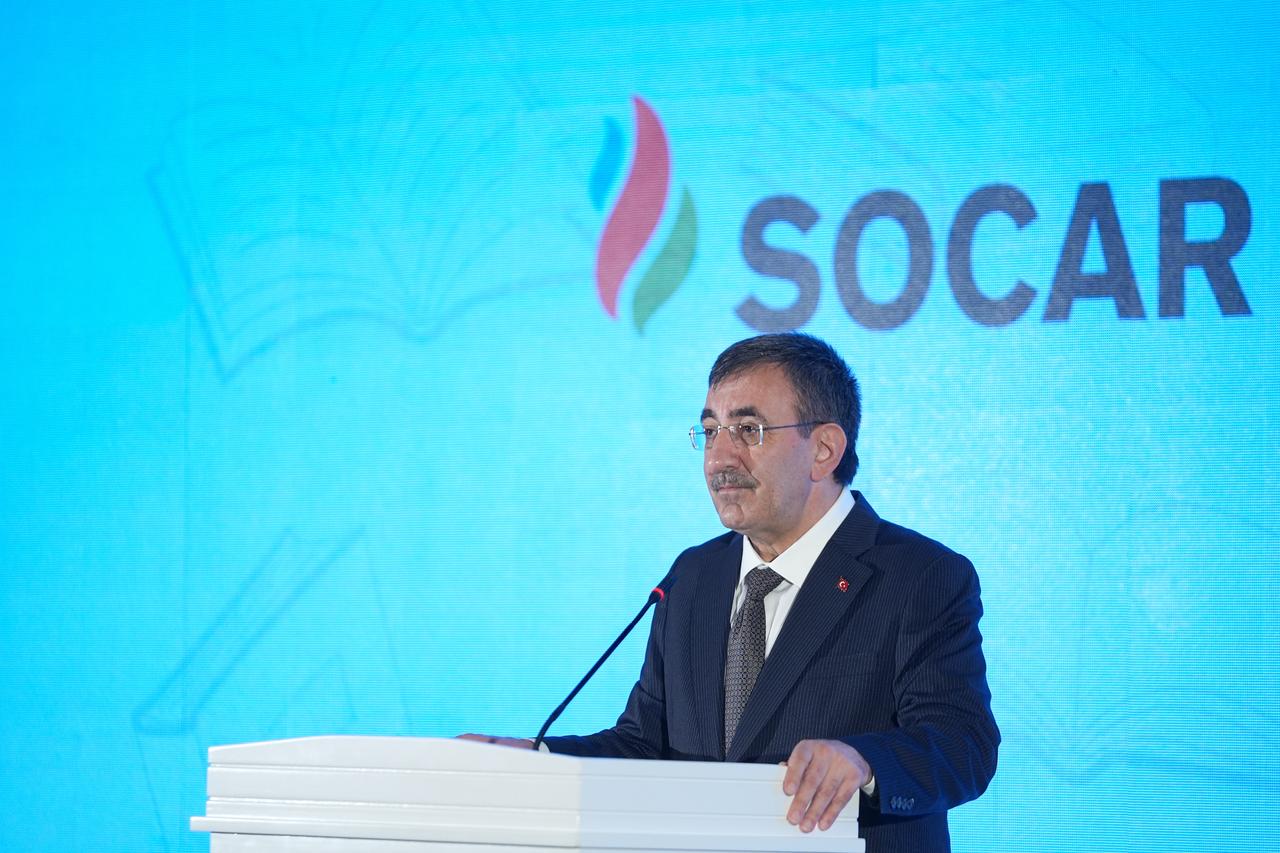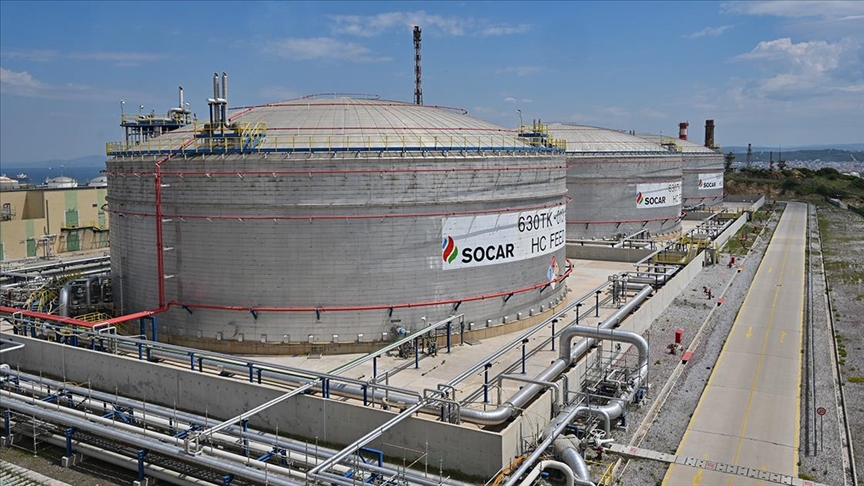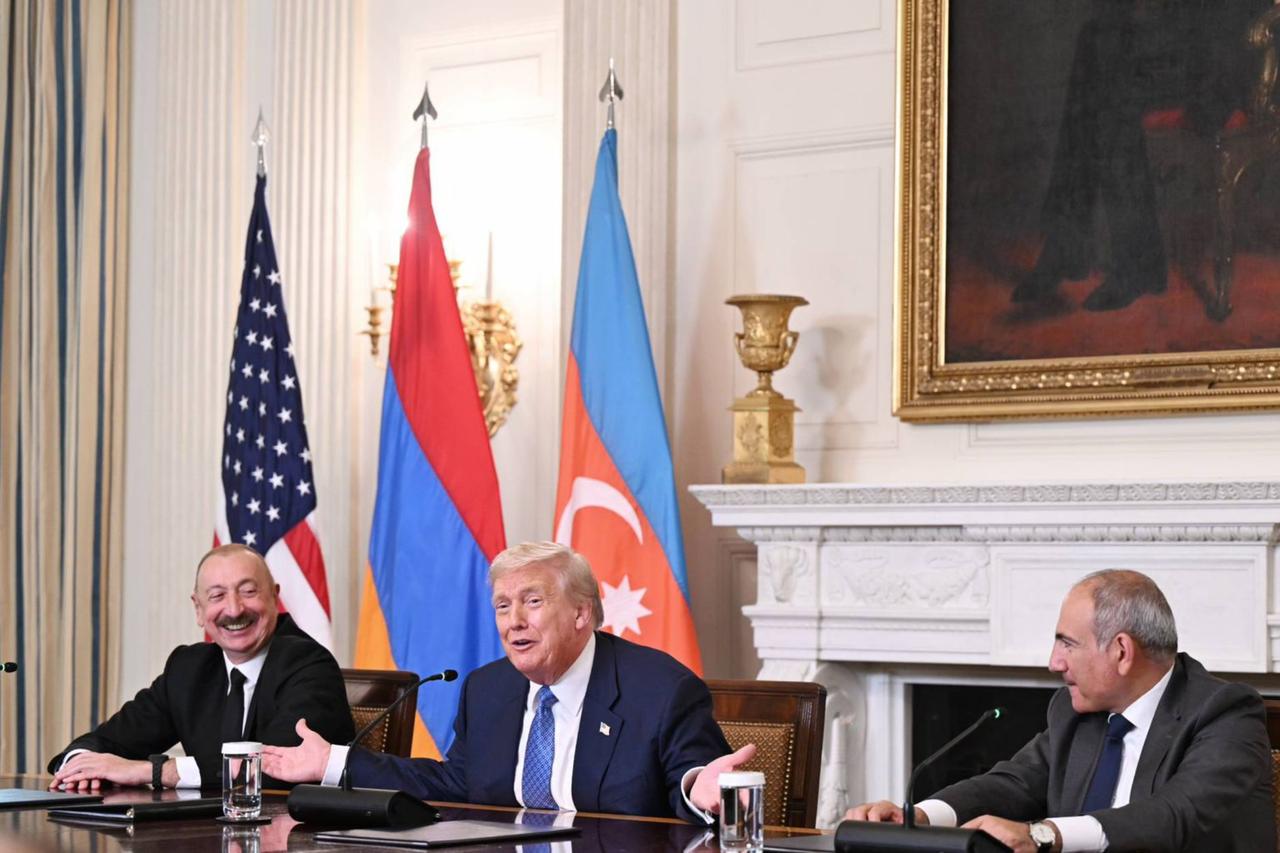
Azerbaijan’s state-owned oil company Socar’s planned $7 billion investment in Türkiye would be crucial to reducing high energy imports, narrowing the current account deficit, and contributing to the country’s macroeconomic stability, Vice President Cevdet Yilmaz said Wednesday.
“Similarly, the activities carried out by our state companies BOTAS and TPAO in Azerbaijan are valuable examples of this strong partnership,” Yilmaz said during a speech at Socar's social responsibility project held at Middle East Technical University (METU) in Ankara.
He underlined that such projects reflect the strength of the long-standing partnership between the two countries, referring to the Turkish state-run TPAO’s cooperation in the Shafag-Asiman natural gas field in the Caspian Sea.
Socar has become the largest foreign investor in Türkiye, committing more than $18 billion since 2008, beginning with the $2 billion acquisition of petrochemical producer Petkim and later expanding to projects including the Trans-Anatolian Natural Gas Pipeline (TANAP) and the Star Refinery, Yilmaz pointed out.
Looking ahead, Yilmaz stressed the need to further expand cooperation on natural gas transit.
“Investments enabling Azerbaijan to supply larger gas volumes, as well as the export of Turkmen gas through Azerbaijan and Türkiye to the benefit of all parties, will be among the most important steps we will take in the coming years,” he said.
He also noted that Azerbaijani gas is already being transported to Syria via Türkiye. “Gas coming from Azerbaijan is being converted into electricity in Syria and will help bring light to people who have long suffered under a harsh regime,” Yilmaz said. “In this sense, the transfer of Azerbaijani gas through Türkiye to Syria is very valuable.”
Türkiye launched natural gas exports to Syria in early August, with Azerbaijani gas transmitted through Kilis. The initial plan envisions a daily flow of 6 million cubic meters, amounting to about 2 billion cubic meters annually.

Yilmaz argued that strengthening electricity interconnections between Türkiye and Azerbaijan would be another strategic priority. “Connectivity in transportation, energy, communications, and digitalization must be increased,” he said, adding that closer integration in the energy sector would bring “substantial opportunities.”
He also welcomed the joint declaration recently signed in Washington by Azerbaijani President Ilham Aliyev and Armenian Prime Minister Nikol Pashinian, calling it “a new opening for lasting peace and stability in the Caucasus.”
“The normalization process in the South Caucasus will add new dimensions to our relations with the Central Asian republics,” Yilmaz said. “The new logistics opportunities, including the Zangezur Corridor, will not only strengthen ties with the Caucasus but also bring a new vision to Türkiye’s relations with other regions.”

New transport and energy links across the Caucasus would contribute not only to “political rapprochement” but also to economic growth, Yilmaz said. He added that the integration of eastern Türkiye, particularly regions such as Eastern Anatolia and the Black Sea, into these projects would help them “converge toward the national average.”
Yilmaz said he welcomed Socar’s attention to renewable energy, environmental sustainability, and social responsibility during its 17 years in Türkiye.
“We are pleased to see that Socar attaches importance not only to petrochemicals and energy but also to renewable energy, environmental projects, and social responsibility,” he said. “These practical yet powerful resources will contribute to Türkiye’s development journey.”